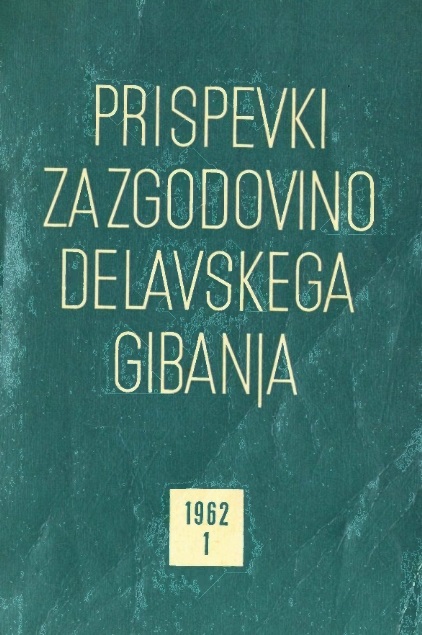Italijanski okupator v Ljubljani 1941—1943
Italian Occupier in Ljubljana 1941-1943
Author(s): Ivo JuvančičSubject(s): Military history, Political history, Government/Political systems, WW II and following years (1940 - 1949), Fascism, Nazism and WW II, Geopolitics, Peace and Conflict Studies
Published by: Inštitut za novejšo zgodovino
Keywords: Political history; The Second World War; 1941-1943; Italy; Italian occupation; occupation of Ljubljana; Slovenian territory; annexation of territory;
Summary/Abstract: This study written from Italian sources does not aim at giving a critical review of all events that occurred in the years 1941—1945 and is unable to do that; it will only present an account of the chief occupiers’ activities, from occupation and annexation of the country to turning it into a fascist land, and above all the fight against the Liberation struggle such as it was led by military as well as civil authorities. The time between-April 1 lth,-when Italian troops marched into Ljubljana, and May 3rd is the time of military occupation and of the Civil Commissary’s authority.'Even-then, the occupier begins to chase first and foremost the communists. On May 3rd 1941 was proclaimed the annexation of the Slovene territory to Italy, and the Ljubljana Province, as a composing part of Italy, came inlo being. The State authority was entrusted to a High Commissary; there was a Council composed of the productive groups amongst the population, but it was only thought of as an advising body. Though a law declared that the men of the province were freed from military service, the High Commissary started, as far back as May 1941. a legion or milizja in order to prepare people for further conscription. The country was at once managed on fascist principles: communal autonomy was cancelled; political associations and bourgeois political parties disappeared of themselves, and fascist -organizations (such as Dopolavoro, Gill and Guff) were introduced. The Slovene bourgeois classes did not make the least opposition, but on the contrary were ready to give their co-operation. Emilio Grazioli, High Commissary, was convinced he had succeeded in pacifying the province. But the people’s rebellion was already being prepared.
Journal: Prispevki za novejšo zgodovino (before 1960: Prispevki za zgodovino delavskega gibanja)
- Issue Year: 3/1962
- Issue No: 1-2
- Page Range: 63-143
- Page Count: 81
- Language: Slovenian

